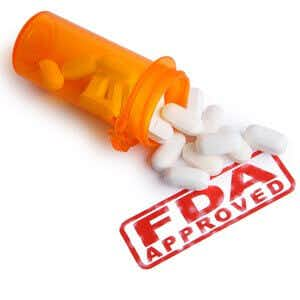
Over a year ago we received a message from a pharmaceutical research scientist. He worked for a large clinical research company in India that tested generic drugs to see whether they reached blood levels identical to the name-brand originals.
Our correspondent was a whistle blower. He alleged that this company had committed “misconduct, regulatory violations and intentional fraud analysis in the process of generic drug testing on healthy human volunteers.”
He criticized the U.S. Food and Drug Administration for failing to fully investigate his allegations and uncover the fraud. We had no way to verify his charges.
But now European regulatory authorities are banning a number of generic drugs that were based on data generated by an Indian testing company, GVK Biosciences. Last year French inspectors turned up irregularities in electrocardiogram data from GVK. The questions that were raised triggered further investigations.
As a consequence, on August 21, 2015, the European Union suspended the sale of about 700 different generic drug formulations. The European Medicines Agency (EMA) originally approved these generic drugs based on clinical trial data from GVK Biosciences. Not all drugs tested by the firm are being banned, and GVK has expressed its disappointment in the decision.
Some of the drugs that are affected by the European ban include the antihistamine fexofenadine (Allegra), the seizure medicine levetiracetam (Keppra), the blood pressure pill nebivolol (Bystolic) and the antidepressant venlafaxine (Effexor). There are hundreds more.
What about the FDA? A spokesperson told the Wall Street Journal blog Pharmalot,
“We have identified the U.S. applications that include data from studies conducted at GVK Hyderabad, and FDA’s subsequent inspection in September 2014, did not reveal systemic issues that affect the safety or efficacy of drug products subject to pending applications or products approved in the U.S.”
That means that Americans may be exposed to generic drugs that European regulators have rejected.
We find it fascinating that the U.S. FDA inspection found “no evidence of systemic issues” while the European inspectors were so concerned with what they found that their regulatory body banned roughly 700 generic drugs as a result of their investigations.
What Happens When a Generic Drug Fails?
One of the generic drugs that was banned in Europe was levetiracetam. We have heard from dozens of readers who have had trouble with this epilepsy medicine. Here is one story:
“Last year I was put on generic Keppra. I started having breakthrough seizures after three years of seizure control on brand name Keppra.
“I told my doctor the generic Keppra was the trouble. She wanted to put me on another anti-epilepsy medication. I flat out refused and asked to first try the brand name Keppra again. I am now back to a normal life.”
Many people don’t realize that their generic drugs may be approved based on clinical tests conducted in India, China and other countries where oversight could be less rigorous than in the U.S. If the data that is submitted to the FDA for analysis is flawed, then we may not be able to trust that the generic drugs are truly bioequivalent to their brand-name counterparts.
Over the last several years there have been numerous scandals involving lax manufacturing practices at generic pharmaceutical firms in India. Now we have learned that some of the companies that do human testing to get generic drugs approved in the first place may also be cooking the books.
We should not have to rely on whistle blowers to reveal fraud. Their lives are often turned upside down. Not only do they lose their jobs, they may never be able to work within the pharmaceutical industry again. In foreign countries they may even be prosecuted for revealing fraud.
The banning of 700 generic drugs in Europe should serve as a wake up call for Americans. Physicians, pharmacists and patients in the U.S. deserve the same protection that European regulators provide their citizens.
The EU listings can be found here:
http://ec.europa.eu/transparency/regdoc/rep/3/2015/EN/3-2015-5100-EN-F1-1.PDF
http://ec.europa.eu/transparency/regdoc/rep/3/2015/EN/3-2015-5100-EN-F1-1-ANNEX-1.PDF
Share your own story below and please vote on this article at the top of the page.

